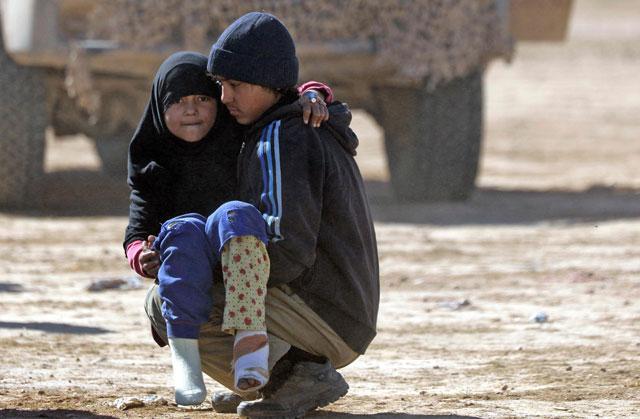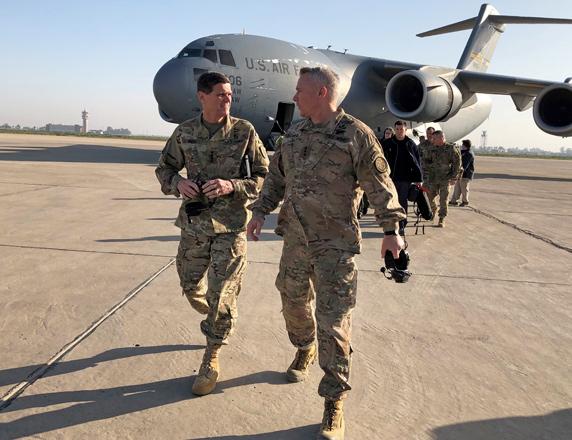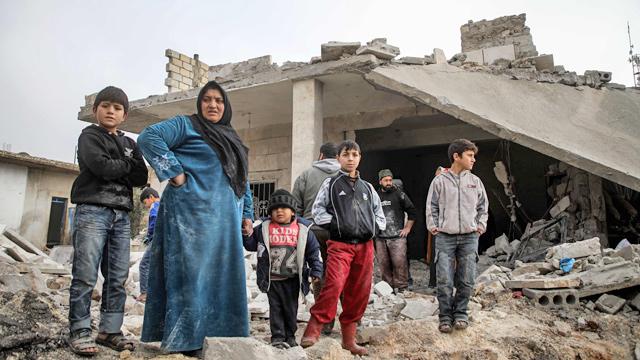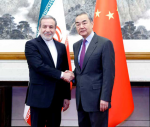You are here
Top US general readies ‘full range’ of Syria options for Trump
By AFP - Feb 23,2017 - Last updated at Feb 23,2017
WASHINGTON — The Pentagon's top officer on Thursday would not say if US ground forces will deploy to Syria to fight Daesh extremists, observing only that he is readying a "full range of options" for President Donald Trump.
General Joe Dunford's remarks come as the Pentagon finalises a new plan to defeat Daesh that Trump ordered shortly after taking office.
"We've been given a task to go to the president with options to accelerate the defeat of ISIS [Daesh] [and] other violent extremist groups," Dunford, the chairman of the Joint Chiefs of Staff, said when asked if more US forces would go to Syria.
"We will go to [Trump] with a full range of options from which he can choose," he said, speaking at the Brookings Institution.
America has approximately 500 troops in Syria, mainly special operations commandos who are training and assisting a coalition of local fighters battling Daesh.
On Wednesday, another four-star general, Joseph Votel, who heads the US military’s Central Command, told reporters that more US troops might be needed in Syria.
“It could be that we take on a larger burden ourselves,” Votel said, though he stressed he did not favour large combat deployments.
Late last month, US media reported the Pentagon would be given 90 days to draw up a plan to set up “safe zones” in Syria, which could require thousands of additional troops.
Trump’s new plan to quicken the anti-Daesh campaign, which began late summer 2014, needs to be carried out in coordination with the State Department and other US political agencies, Dunford said.
“This is an incredibly complex environment. Everything that we do and fail to do will have second- and third-order effects,” Dunford said.
“We don’t want to bring options to [Trump] and solve one problem only to create a second problem.”
Dunford was also asked about Iran’s influence in Syria, where it is supporting the regime of President Bashar Assad, and in the region in general.
He said he had not seen Iranian behaviour change since then-national security adviser Michael Flynn put Tehran “on notice”.
“I haven’t detected a change in Iran’s behaviour... From my perspective the major export from Iran is malign influence across the region,” he said, “This is a pattern of behaviour that has manifested itself over many years.”
Flynn was later forced to resign for not being truthful with the vice president about his discussions with Russia’s US ambassador.
Related Articles
WASHINGTON — A top US general warned on Tuesday that Daesh would pose an enduring threat following a planned US withdrawal from Syria, sayin
BAGHDAD — The general overseeing US forces in the Middle East flew into Iraq on Sunday for talks with US and Iraqi officials
WASHINGTON — The United States has no timeline to withdraw troops from Syria but does not plan to stay indefinitely, a senior State Departme
















